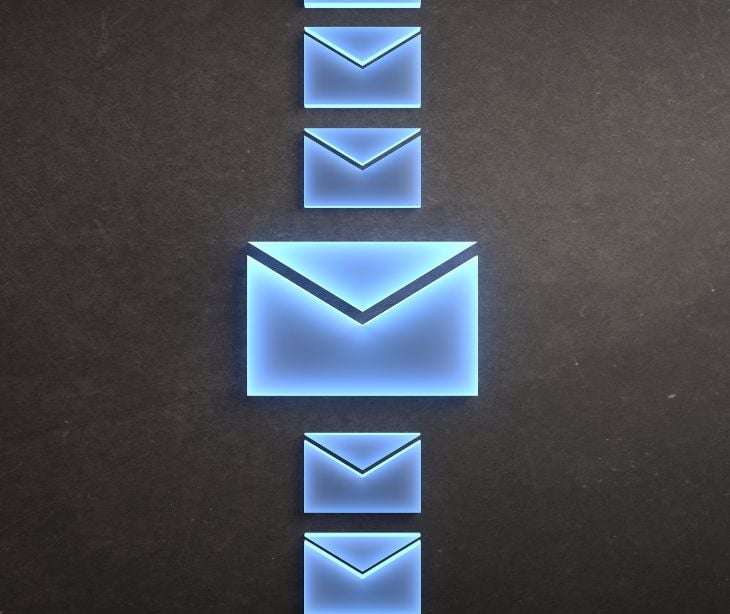
Email communication has become a ubiquitous tool in the healthcare industry, including mental health therapy. From appointment reminders to client updates, therapists frequently use email to connect with prospects and clients. However, when dealing with sensitive information, ensuring compliance with privacy regulations such as the Health Insurance Portability and Accountability Act (HIPAA) becomes a concern.
Many therapists have adopted HIPAA compliant email disclaimers to meet these regulatory requirements. These disclaimers, typically appended to the end of an email, remind the recipient about the confidential nature of the content and their responsibility to protect it. While these disclaimers are widely used, it's necessary to understand their limitations and the broader implications of email communication in the healthcare sector.
Understanding HIPAA and email disclaimers
Email has become a standard method of communication across various industries, including mental health therapy. However, the sensitive nature of the information shared in this field requires strict privacy protection measures, leading to the rise of HIPAA compliant email disclaimers.
The emergence and role of email disclaimers
The emergence of email disclaimers in the mental health therapy field has responded to the need for privacy protection in electronic communications. These disclaimers, typically placed at the end of an email, indicate the confidential nature of the information contained within. They serve as a reminder to the recipient about the sensitive nature of the content and the responsibility to protect it.
Adding an email disclaimer has been a simple and efficient way to help ensure compliance with the Health Insurance Portability and Accountability Act (HIPAA) for many mental health therapists, counselors, and psychologists. By including these disclaimers, practitioners aim to mitigate the risks of transmitting protected health information (PHI) via email.
The limitations of HIPAA email disclaimers
While email disclaimers are widely used, one must understand their limitations. Contrary to popular belief, neither HIPAA nor the Department of Health and Human Services (HHS) mandates the use of email disclaimers. Furthermore, these disclaimers do not guarantee that a practice's emails are HIPAA compliant. There is little evidence that disclaimers provide substantial protection in the event of a data breach, and they could potentially exacerbate the situation.
A poorly phrased disclaimer might cause confusion and lead to the inadvertent spread of PHI, causing more harm than good. While email disclaimers can be beneficial in a detailed privacy protection strategy, they should not be the sole measure employed to safeguard clients' sensitive data.
The proper use of email disclaimers
A disclaimer should be one piece of a wider, HIPAA compliant strategy, including secure messaging, encryption, and regular data audits. By adopting a holistic approach, mental health professionals can enhance the security of their email communications while ensuring compliance with HIPAA regulations.
Read more: Why email disclaimers are not enough for HIPAA compliance
The risks and considerations of using email in healthcare
Email communication remains necessary for healthcare professionals, including mental health therapists. However, using email to transmit sensitive patient information poses several risks and considerations that must be addressed.
The inherent security risks in email communication
While email communication provides convenience and efficiency, it carries major security risks. A major challenge is that many email systems lack encryption measures, making them vulnerable to data breaches. Moreover, confirming whether the intended recipient has received the information can be challenging. In the context of mental health practices, these security risks could potentially expose PHI, leading to serious violations of privacy and HIPAA regulations.
The implication of the HIPAA security rule on email use
Under the HIPAA security rule, there are no explicit prohibitions against using email to send PHI. However, the rule requires covered entities, including therapists, to implement appropriate safeguards to ensure the confidentiality and integrity of PHI. This means that while using email isn't strictly prohibited, practitioners must ensure they are using it in a manner that doesn't compromise their clients' privacy. This could involve using secure messaging software, performing regular security audits, or using encrypted email services.
Customizing an email strategy based on your practice needs
Every mental health practice is unique, and thus, the email strategy should align with the specific needs and circumstances of the practice. This could involve making sensible use of disclaimers, integrating secure messaging platforms, or using encrypted email services. Approach the email strategy holistically, with a focus on maintaining HIPAA compliance and safeguarding clients' sensitive data at all times.
Read more: Is it safe to use email in healthcare?
Exploring alternative secure communication methods and strategies
When it comes to communicating sensitive information in healthcare, there are alternatives to traditional email that can offer a greater degree of security. Understanding these options and integrating them into a practice's communication strategy can help mitigate potential risks and enhance HIPAA compliance.
The advantages of secure messaging software
Secure messaging software presents an efficient and reliable method of communication that can safeguard PHI. Tools for secure HIPAA compliant email and electronic messaging offer an encrypted platform for therapists to communicate quickly with clients and team members.
Comprehending and applying HIPAA's security rule
The HIPAA security rule is flexible by design. It allows covered entities to choose security measures that fit their specific needs, as long as they are reasonable and appropriate. This allows practices to consider factors like their size, complexity, and capabilities when implementing security measures. Applying this rule means considering every aspect of the practice, from the chosen communication platform to how the staff is trained in handling PHI.
Encrypted email services for secure communication
Encrypted email services are another useful tool in ensuring secure communication. HIPAA compliant email providers like Paubox include HIPAA compliant, encrypted emails, providing a higher level of security for communication needs.
Navigating the complexities of HIPAA compliant email communication
As the healthcare industry continues to change and technology becomes more embedded in practice operations, mental health professionals need to understand the role and limitations of email disclaimers, the risks inherent to email communication, and the benefits of alternative secure communication methods.
Developing a HIPAA compliant communication strategy
An email disclaimer should not be the sole strategy to safeguard clients' sensitive data. Instead, mental health practitioners should adopt a detailed, HIPAA compliant communication approach that may include secure messaging platforms, encrypted email services, and regular data audits.
Leveraging secure messaging and encrypted email services
Secure messaging software and encrypted email services offer a more advanced solution for HIPAA compliant communication. These platforms provide encryption, verifiable recipient identities, and enhanced security features that mitigate the risks associated with traditional email communication.
Ongoing monitoring and adaptation
Ensuring HIPAA compliance in email communication is an ongoing process that requires regular monitoring and adaptation. As technology and regulations change, mental health practitioners must stay vigilant, periodically reviewing their communication practices, conducting security audits, and updating their strategies to address emerging threats and compliance requirements.
Paubox’s advice
One must understand that while a HIPAA email disclaimer informs patients, it doesn't alone ensure HIPAA compliance. For secure emailing of PHI, healthcare professionals should opt for a trusted third-party email security provider. Paubox Email Suite offers a seamless solution for HIPAA compliant email services. It encrypts all outbound messages by default, eliminating the need to manually select which emails require encryption. This ensures patients receive messages directly in their inbox without additional passwords or portals. Moreover, Paubox Email Suite’s Plus and Premium plans provide advanced inbound email security features, shielding against malicious cyber threats before they reach the inbox.
Learn more: HIPAA Compliant Email: The Definitive Guide
In the news
Talkspace, a leading chat-based therapy start-up, has come under scrutiny following an investigative report by The Verge, which revealed several ethically questionable practices. The report alleges that Talkspace monitored therapist-patient conversations, required therapists to insert promotional scripts into chats, and lacked proper protocols for handling crises involving anonymous patients. These practices, combined with abrupt therapist lockouts and legal threats for continuing relationships with clients off-platform, have raised ethical and privacy concerns. Talkspace CEO Oren Frank denied most of the allegations in a Medium post, but the revelations have showed issues in the company's operational and ethical standards.
FAQs
Does HIPAA apply to email communication with therapy clients?
Yes, HIPAA applies to any communication involving PHI, including emails. Therapists must ensure that emails containing PHI are secure and comply with HIPAA regulations.
Do I need client consent to send therapy-related emails?
Yes, explicit consent from clients is required before sending emails that contain PHI. It's best to obtain this consent in writing and inform clients about the risks of email communication.
What email services can therapists use for HIPAA compliant communication?
Therapists should use encrypted email services and sign a business associate agreement (BAA) with the provider.
What should be included in an email disclaimer for HIPAA compliance for therapists?
An email disclaimer should state that the email may contain PHI and is intended only for the recipient. It should also warn that unauthorized access, use, or disclosure is prohibited and instruct the recipient to notify the sender if they received the email in error.
Subscribe to Paubox Weekly
Every Friday we'll bring you the most important news from Paubox. Our aim is to make you smarter, faster.



